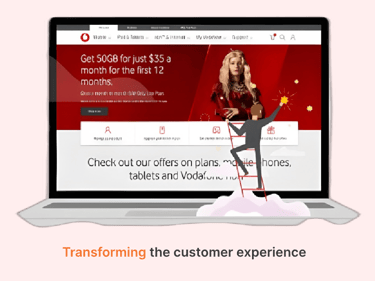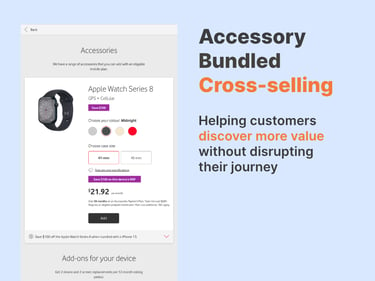Express Upgrades Optimisation
A strategic UX initiative focused on optimising the mobile upgrade experience for existing Vodafone customers. The goal was to streamline a complex, high-friction journey into a fast, intuitive, and scalable digital flow.
Project Overview
Problem
Existing customers targeted for mobile upgrades were directed to a generic journey not optimised for their needs, resulting in poor conversion rates and customer satisfaction.
The outsourced solution was costly ($100k/month), inflexible, and relied on manual processes that caused delays and high order change rates.
Solution
A redesigned upgrade journey that's faster, modular, and intuitive reducing inefficiencies while supporting real-time capability.
The new solution eliminated manual campaign updates, expanded beyond mobile, and implemented real-time processing to reduce declines.
Creating a personalised journey meant removing unnecessary friction points and steps resulting in a simplified streamlined purchase experience resulting in a 16.4%% increase in Upgrades digital mix.
Key Results
+16.4%
Increase in Upgrade conversion
27h → 4h
Reduction in campaign setup time
37%
Reduction in post- order changes
Reduction in vendor cost
100%
Complexity
High
My Role
Led UX Designer
Length
12 mths
Identified Issues
When targeting existing customer to upgrade they are directed to the standard upgrade journey which is not optimised for the offer they just received.
High Order Change Rate:
51% of handset orders are modified post-submission, suggesting low confidence or clarity in the initial experience.








Decision Complexity:
Multiple upgrade combinations (e.g., handset colour, plan) create friction and overwhelm users.
Slow Campaign Activation:
27-hour average to go live delays timely customer engagement.
Order Declines Risk:
Non-real-time processing leads to failed orders when customer circumstances change.
Initial research uncovered key inefficiencies in the upgrade offer process, including $100k/month in third-party platform costs and delays from non-real-time, manually updated systems. The solution's limited scope and reliance on static lookup tables hindered broader application, operational efficiency, and customer experience.
2.Ideation
Ideation began with a cross-functional session involving the design and content chapters to explore initial concepts. A second round was held with the agile team and key stakeholders to align ideas with technical feasibility and business goals.
3.User Testing
The first round of testing focused on exploring multiple design directions to identify what resonated best with users. Insights from this phase informed a refined prototype, which was validated in round two by combining winning patterns to ensure a more seamless and effective user experience.
1.Discovery & Research
My design process




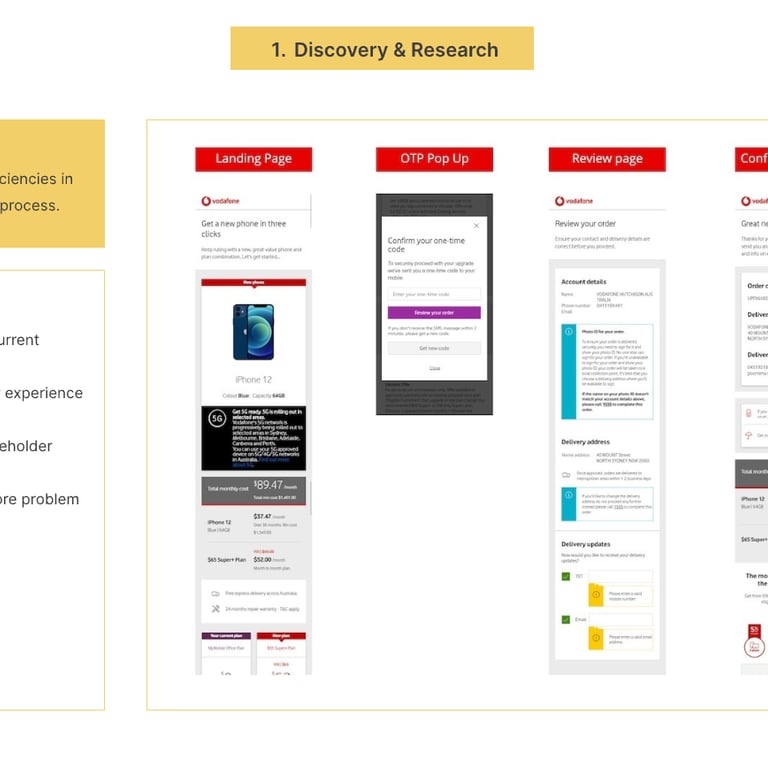
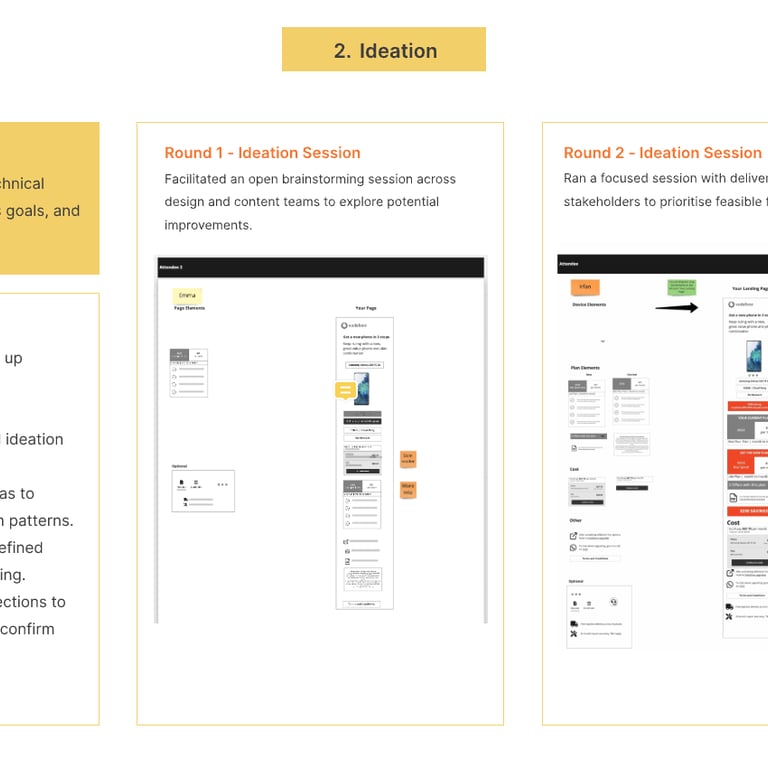
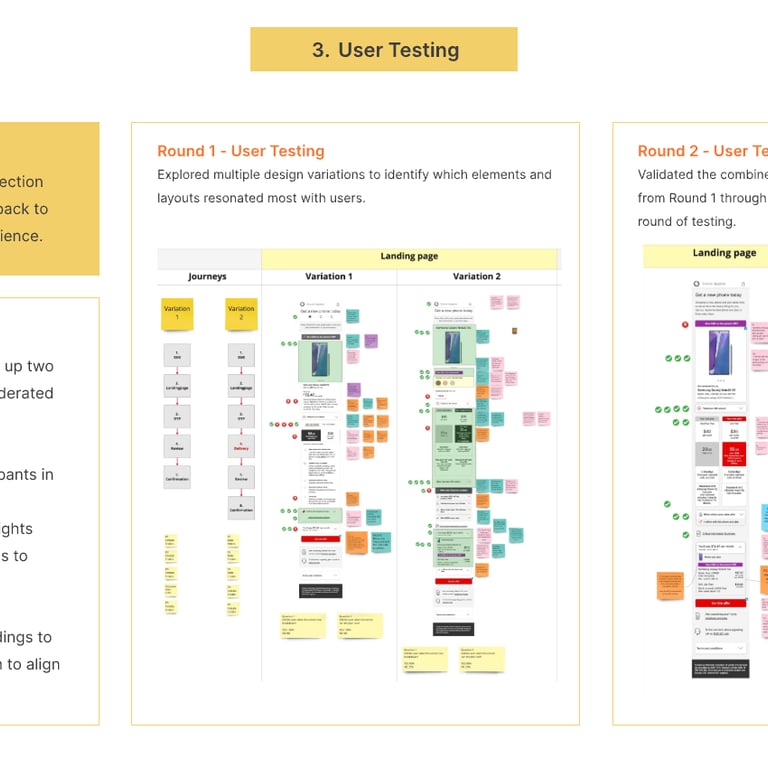
thumbnail to zoom
4.Delivery
The final designs reflect a fully optimised “happy path” experience, using winning patterns from round 2 user testing. The designs were also structured into modular components to support all scenarios and ensure consistency and scalability. Finally I mapped out data end-points for user stories and to capture edge cases for development and UAT.


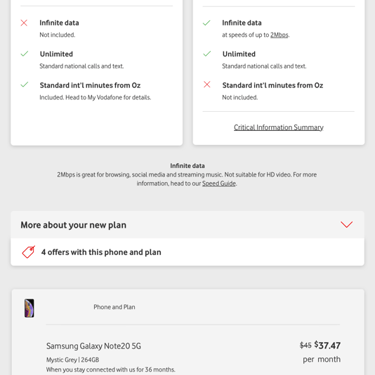
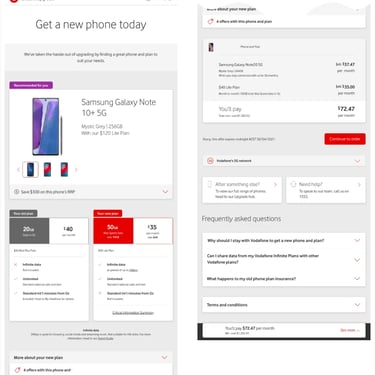
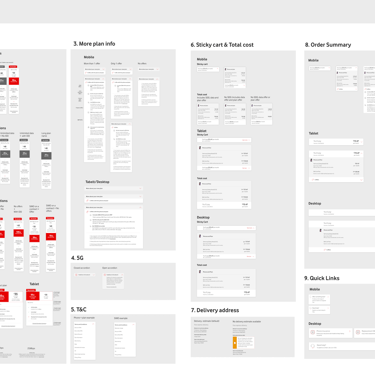
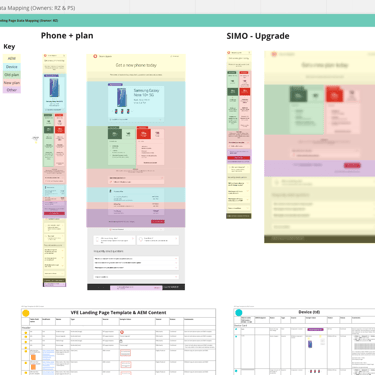




+16.4%
Increase in Upgrade conversion
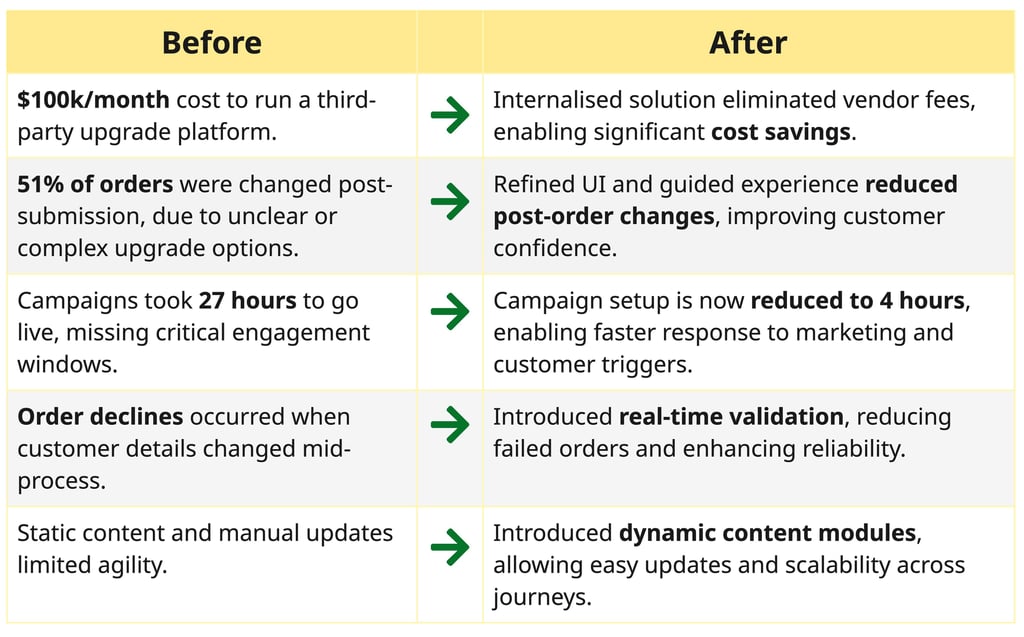

The Results




27h → 4h
Reduction in campaign setup time
37%
Reduction in post- order changes
100%
Reduction in vendor cost
Learnings


High Post-Order Change
51% of orders were modified after submission, indicating decision friction.
Lesson: Prioritise clarity in upgrade flows and surface key choices early.




System Complexity
Legacy tech and multiple system handoffs increased delivery risk.
Lesson: Include tech scoping and system mapping upfront in cross-functional planning.
Disconnected Copy
Word docs made development handover inefficient.
Lesson: Centralise copy in design tools or linked sources.
More Work
A digital transformation program focused on the full redesign of the Vodafone website and the replacement of the technology stack supporting it.
To introduce a new high-value accessories journey seamlessly into Vodafone’s online shopping experience by surfacing relevant bundled offers.

